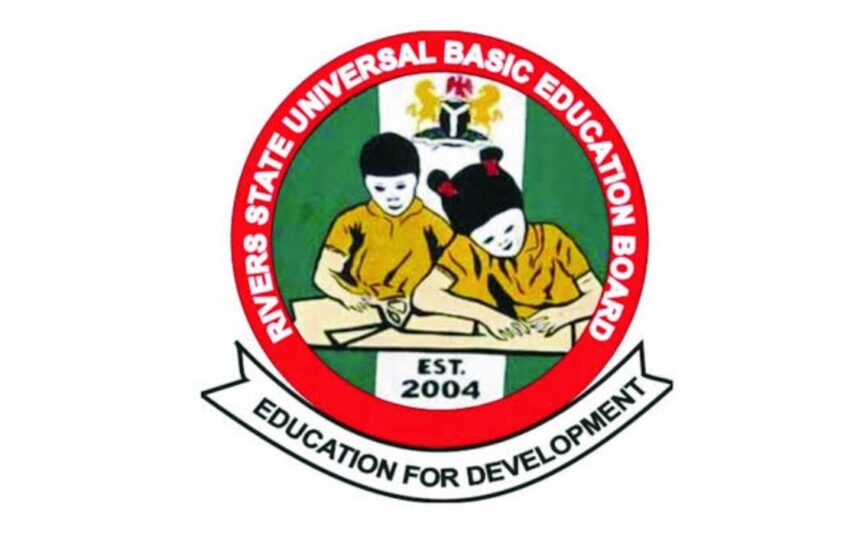..says 17m Nigerian children remain out-of-school
The Universal Basic Education Commission (UBEC) has disbursed the sum of N22 billion to the state governments for the training of 224,000 teachers and education management across all 36 states of the Federation and Federal Capital Territory (FCT).
Minister of Education, Dr. Olatunji Alausa made this known on Monday in Abuja during the national flag-off of the Universal Basic Education (UBE) School Based Management Committee-School Improvement Programme (SBMCSIP) and the Teacher Professional Development (TPD) activities that are being funded using the Federal Government/UBE intervention fund.
The special intervention is coming amid revelation by the Executive Secretary of UBEC, Aisha Garba, that more than 17 million school-age children remain out of school, especially in rural and low-income communities across the country.
While giving breakdown of the disbursement, Alausa explained that each state would receive N598 million for targeted training in key areas to improve quality education under the UBEC teacher professional development.
In the same vein, the Minister announced the disbursement of N2 billion to about 1,147 school-based management committees across all 36 states, including FCT.
According to him, the money would support over 15,000 different improvement projects, which are focused and will be directed towards the renovation of classrooms, purchasing of furniture, building workshop facilities, and improving security in the schools.
Each school-based management committee received a cheque of 1.8 million at the event, where the Minister disclosed that the investment would reach over 56,000 schools and would impact more than 17 million learners.
He reaffirmed the commitment of President Bola Ahmed Tinubu led administration towards ensuring that every child, no matter where they are born, deserves access to quality education delivered in a safe, functional, and supportive environment.
Alausa highlighted various reforms and initiative introduced by the Federal Ministry of Education aimed at repositioning basic education in the country, noting that the SBMC and School improvement initiative fully aligned with the vision of President Bola Tinubu whose renewed hope agenda places education and even capital development at the core of national transformation.
“The President has been clear. Our children must learn, our teachers must be equipped, and our schools must become engines of opportunity for every single Nigerian household.
“I am delighted to also note that the initiative will foster community partnership and engagement which can effectively address the issue of out-of-school children and also expand access to school age children while improving the teaching and learning environment.
ALSO READ: Poor coordination, weak partnership bane of basic education — UBEC boss
“The Teacher Professional Development programme aligns with the Ministry’s vision of improving learning outcomes through the strengthening of teacher quality in the sector to meet global standards. Recently, and as part of these reform measures, a new curriculum which promotes competence and skills was introduced,” he stated.
The Minister commended UBEC for its relentless efforts in the implementation of the SBMC- SIP initiative while calling on States and Local Government Areas to build on the interventions provided by the Federal Government as basic education implementation is their constitutional responsibility.
He urged the two levels of Government to maximize Federal Government’s support by ensuring effective monitoring as well as injecting further indigenous fund into the SBMC-SIP programme for greater impact.
He also called on the beneficiary schools to remain guided by the reviewed School Improvement Programme (SIP) Implementation Guidelines which where officially launched at the event.
“Additionally, at the Federal Ministry of Education, we are committed to supporting UBEC’s 2025 – 2027 Bold Commitments that will ensure the construction of 7,200 new UBE facilities, provision of 1,680,000 furniture, extensive renovation of 195,000 classrooms, provision of 22,900 water boreholes and 28,000 toilets and provision of perimeter fencing in 14,000 schools to ensure a safe learning environment particularly in the rural areas,” he stated.
Minister of State for Education, Prof. Suwaiba Said Ahmad, on her part, noted that the national flag-off of SBMCSIP programme was a testimony of Government’s resolve and commitment to providing the enabling atmosphere for individuals and groups to make valid contributions to the improvement of basic education and ultimately national transformation.
Executive Secretary of Universal Basic Education Commission, Aisha Garba, earlier in her welcome remarks, noted that even though basic education sector has made some level of progress, serious gaps still persist.
She lamented that about 17 million school-age children remain out of school, especially in rural and low-income communities across the country.
“While enrolment rose by 7 percentage points between 2016 and 2021, access to education has not expand to all, about 17 million children remain out of school, especially in rural and low-income communities.
“And only 9% of children aged 7–14 in rural areas demonstrated age-appropriate reading skills.
“These numbers are more than statistics—they are a call to action for urgent, targeted investments in infrastructure, teacher development, to expand equitable access to all parts of Nigeria,” she said.
WATCH TOP VIDEOS FROM NIGERIAN TRIBUNE TV
- Let’s Talk About SELF-AWARENESS
- Is Your Confidence Mistaken for Pride? Let’s talk about it
- Is Etiquette About Perfection…Or Just Not Being Rude?
- Top Psychologist Reveal 3 Signs You’re Struggling With Imposter Syndrome
- Do You Pick Up Work-Related Calls at Midnight or Never? Let’s Talk About Boundaries







